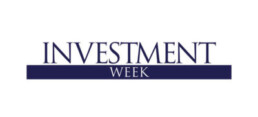Deep Dive: Absolute return landscape in the UK ripe for disruption
Our fund manager, Cormac Nevin, dives into the absolute return industry.
The World In A Week - The Long and Unwinding Road
Equity markets delivered positive returns last week, with the MSCI All Country World Index delivering +1.1% in sterling terms, while the FTSE All Share Index pretty much delivered the same return. The best performing region and country was MSCI Emerging Markets and MSCI China, which generated +3.3% and +3.8% respectively. Returns over the last few weeks have been volatile for these markets, following the recent announcements and policy adjustments put out by China’s State Council and the Communist Party’s Central Committee. So far, the Chinese equity market has remained under water throughout 2021.
All eyes last week were on Fed Chair Powell’s remarks at Jackson Hole, as he guided on future bond purchases. Equity markets took his comments about tapering bond purchases later this year within their stride. Implications for potential future higher yields generally saw bond indices pull back over the week. Powell reinforced the view that the US economy had made enough “substantial progress” to warrant the shift in policy, though the Central Bank would also be assessing the data from the raging delta variant of the coronavirus. Powell also stressed that the Fed would not be in a hurry to begin raising interest rates after the wind-down. The Chairman continues to do his best tightrope walking act carefully, and so far, successfully, threading the needle of indicating progress towards the Committee’s goals, whilst leaving the optionality to deal with the ongoing pandemic.
Powell also continues to argue that the inflationary impact from the crisis is largely transitory. However, we continue to see problems within the global supply chains, affecting everything from McDonald’s milkshakes to golf balls. One of the world’s busiest ports in China had to shut down a container terminal because a worker was diagnosed with COVID-19, and it is reported that it will take a week for the port to get back to normal. It appears that the Fed’s task of guiding the markets is going to be incredibly tough and very much data-dependent, but for now markets are prepared to play along.
Any opinions stated are honestly held but are not guaranteed and should not be relied upon.
The information contained in this document is not to be regarded as an offer to buy or sell, or the solicitation of any offer to buy or sell, any investments or products.
The content of this document is for information only. It is advisable that you discuss your personal financial circumstances with a financial adviser before undertaking any investments.
All the data contained in the communication is believed to be reliable but may be inaccurate or incomplete. Unless otherwise specified all information is produced as of 31st August 2021.
© 2021 YOU Asset Management. All rights reserved.
The World In A Week - Delta’s Dampening Effects
The rapid return of geopolitical risk did little to move the spotlight away from the evolving COVID-19 pandemic. While it is likely that Afghanistan will see significant instability in the coming months, the biggest risk to investors remains the virus.
The key to economic recovery will be the reopening of economies and there is a persistency about the Delta variant that sees global cases climbing, particularly in places where vaccination rates are low. This will hamper attempts to keep economies open and recent data has seen a slowdown in consumer spending. Sentiment is likely to worsen over the coming weeks as we see children return to schools and employees returning to work.
While this may read as a gloomy outlook, a market correction has been overdue with indices hitting record highs over the past weeks. There remains sufficient liquidity in markets to soften any potential impact, as fear continues to dominate market sentiment. That is why central banks are being particularly cautious in their commentary about reducing monetary measures, as the echoes of the overly aggressive policy tightening in 2013 and 2018 are fresh in the mind of investors.
This made the minutes from the Federal Reserve’s Open Market Committee (FOMC) even more timely, as they corroborated what the Chairman Jerome Powell had already confirmed in his press conference three weeks ago. Tapering of asset purchases had been discussed in detail and quantitative easing is ready to be deployed when the time is judged to be correct.
This timing is critical, and it was fully expected that at the annual Economic Symposium at Jackson Hole this week, there would be a signal of when tapering would commence. This would then be followed by a formal decision from the FOMC in the fourth quarter, with potential easing being implemented in early 2022.
However, the meeting on Friday has now been changed to a virtual event as the risk of COVD-19 has been escalated to ‘high’. The Chairman of the Federal Reserve has always reiterated that the path of the US economy, and ultimately the unwinding of the emergency monetary measures, would depend on the course of the virus. The change from the Jackson Hole meeting from real to virtual is a reminder of the biggest risk factor to our investment decisions remains COVID-19.
It also justifies our tactical asset allocation decision in remaining neutral to equities since we moved from underweight at the bottom of the markets in April 2020. We always expected increased volatility through this phase, as policymakers navigated away from emergency conditions and interpreted conflicting data. We remain confident that 2021 will be a year where we post positive returns and look towards 2022 where change will actually be implemented.
Any opinions stated are honestly held but are not guaranteed and should not be relied upon.
The information contained in this document is not to be regarded as an offer to buy or sell, or the solicitation of any offer to buy or sell, any investments or products.
The content of this document is for information only. It is advisable that you discuss your personal financial circumstances with a financial adviser before undertaking any investments.
All the data contained in the communication is believed to be reliable but may be inaccurate or incomplete. Unless otherwise specified all information is produced as of 23rd August 2021.
© 2021 YOU Asset Management. All rights reserved.
Why advisers are picking active funds this Summer
Advisers are using active and passive funds in an increasingly targeted way to get the best returns for clients.
Experts keep one eye on September after July’s strong employment stats
The ONS estimated there were 953,000 job vacancies in May to July 2021, growing 290,000 compared to the previous quarter and 168,000 more than pre-pandemic.
The World In A Week - Political Shift
Last week the MSCI All Country World Index (ACWI) returned +0.8% in GBP terms, underpinned by a strong week from Europe equities, Japanese equities and the FTSE All Share Index.
Political tensions have increased significantly in Afghanistan as the US-backed President Ashraf Ghani fled the country as the Taliban seized control of the capital. In what is the longest war in America’s history, the focus is now on allowing Afghans and embassy staff to evacuate the country before the civil unrest escalates. It was expected that Taliban forces would take up to 90 days to seize control of the capital Kabul, however they managed to do so in a much shorter time frame. The Pentagon declared a further 1000 troops would be deployed in addition to the 5000 troops that President Biden announced in a bid to facilitate the evacuation of key personnel back to the US.
Elsewhere, the political backdrop has shifted in China where the government is set to operate with greater regulation over its national security and technology. China's State Council and the Communist Party's Central Committee issued a 10-point plan which outlines its plans to reduce monopoly power, with the likes of Alibaba and Tencent having taken dominant market positions. Most recently, Alibaba accepted a record £2 billion fine for abusing its market position. China forms 34.6% of the MSCI Emerging Markets Index with MSCI China returning -11.9% in GBP terms year to date following the clampdown from government forces. This has been one of the major reasons for emerging markets underperformance relative to the wider global equity universe where MSCI All Country World Index (ACWI) has returned +16.3% in GBP terms.
Any opinions stated are honestly held but are not guaranteed and should not be relied upon.
The information contained in this document is not to be regarded as an offer to buy or sell, or the solicitation of any offer to buy or sell, any investments or products.
The content of this document is for information only. It is advisable that you discuss your personal financial circumstances with a financial adviser before undertaking any investments.
All the data contained in the communication is believed to be reliable but may be inaccurate or incomplete. Unless otherwise specified all information is produced as of 16th August 2021.
© 2021 YOU Asset Management. All rights reserved.
Experts predict UK economy will recapture pandemic losses by end of 2021
Industry commentators are forecasting that the UK economy will "comfortably" recover to its pre-pandemic levels by the end of the year, after a strong June reading that took year-on-year Q2 growth to 4.8%.
The World In A Week - Jobs for All
Last week was broadly positive for markets, with the MSCI All Country World Index of global stocks rising +1.3% in GBP terms. This was led by UK Equities, as well as Emerging Market names in the Asia Pacific region. Within Fixed Income, higher risk bonds outperformed higher quality bonds.
The Bank of England’s Monetary Policy Committee met on Thursday and voted to leave the base interest rate at 0.10%, to maintain monetary stimulus for the recovering economy. Whilst these outcomes were unsurprising, there have been increased calls from members of the Committee to roll back the support for the economy sooner, citing building inflation pressures observed both in the UK as well as abroad.
An economic event of greater consequence took place on Friday, when data on US non-farm payrolls was released for July. These showed that the US economy added 943,000 jobs for the month, which was more than the 870,000 predicted by economists polled by Reuters. This data is illustrative of an economy that is recovering briskly, adding further pressure on the Federal Reserve to begin “tapering” their purchases of government bonds and mortgage back securities sooner than the market currently anticipates. Central banks across the world are walking the tightrope between ensuring the economy has adequate support versus not allowing inflation to run out of control.
Any opinions stated are honestly held but are not guaranteed and should not be relied upon.
The information contained in this document is not to be regarded as an offer to buy or sell, or the solicitation of any offer to buy or sell, any investments or products.
The content of this document is for information only. It is advisable that you discuss your personal financial circumstances with a financial adviser before undertaking any investments.
All the data contained in the communication is believed to be reliable but may be inaccurate or incomplete. Unless otherwise specified all information is produced as of 9th August 2021.
© 2021 YOU Asset Management. All rights reserved.
The World In A Week - Are we there yet?
The markets continued to be sensitive, with increased volatility being blamed on the stubborn concerns over COVID-19’s Delta variant and the risk that this poses to the reopening of economies.
Volatility was apparent in the Asian equity markets, which saw the Chinese authorities cracking down on companies that they view as having financial stability risk, exacerbating inequality, or challenging the Government’s authority. Previously, their main target was their own technology sector, however this intensified with an overhaul of China’s private education sector. Firms operating in this sector are now banned from making profits, raising capital, or going public. Concerns have increased as to what sector may be next for China’s hand. This has prompted a hastily organised meeting with the major investment banks to reassure them that the crackdown on the private education sector was not meant to hurt other companies. This adds another reason to remain cautious on Chinese equities.
The Federal Open Market Committee (FOMC) issued a statement last week, confirming they will continue to assess the economic situation before paring back their quantitative easing programme. It is sensible for the world’s most influential central bank to be data dependent, however Jerome Powell, the Chair of the Fed, knows that managing expectations is critical. While there was a unanimous vote to keep rates unchanged and asset purchases at $120 billion a month, there were also heavy hints at reducing these emergency measures which was something already under discussion.
During the subsequent press conference, Jerome Powell confirmed that the Committee had already taken a “deep dive” into how to go about tapering asset purchases, with the US economy having made significant progress towards the dual mandate of the Federal Reserve of achieving maximum employment and price stability.
This month we have the meeting of minds at Jackson Hole, which has typically been the breeding ground for co-ordinated forward guidance from the world’s policymakers. Expectations are high for more detail on when the emergency monetary measures will eventually be tapered. The expected signalling from Jackson Hole is likely to be followed by a formal decision from the FOMC in the fourth quarter.






The World In A Week - Japan fails to get its Suga rush
After hosting a successful Olympic and Paralympic games, it is now all change for Japan. After just a year as the country’s prime minister, Yoshihide Suga will be stepping down amid continuing criticism of his handling of the COVID-19 pandemic.
Ahead of the general election, to be held by the end of November, Suga announced that he would not seek re-election in this month’s leadership contest for the Liberal Democratic party. The news led to the Topix Index hitting a 30-year high, as a new leadership raised expectations of increased stimulus measures to combat the pandemic.
There is no mistaking that sentiment is currently being driven by the virus. Whereas Japan looks attractive in the short term because of the expectation of new economic stimulus measures, the US is potentially less attractive as previous measures and protections for the economic fallout from COVID-19 are expiring.
It is a double whammy for many Americans today. Last week saw the end of the eviction moratorium, which prevented landlords from evicting tenants that were receiving rental assistance from the Government or met certain income thresholds. It is estimated by the Federal Reserve Bank of Philadelphia that the amount of back rent owed has reached $15 billion, while Goldman Sachs predicts some 750,000 evictions by the end of the year. For context, there were 1 million evictions in 2010, as the tail end of the Global Financial Crisis bit hard.
Today sees the end of increased unemployment benefits for an estimated 7.5 million American workers. This comes on the heels of a disappointing jobs report from the US, which showed a sharp drop from July’s 1.1 million jobs. August’s expectation of 733,000 jobs was slashed by two-thirds, with only 235,000 new jobs created and could be an indication of the effect that COVID-19’s Delta variant is having on companies’ hiring plans.
It is hoped by US policymakers that the expiring of generous unemployment benefits will lure the unemployed back into jobs. There are an additional 5.3 million Americans who are unemployed now, compared to before the pandemic. These people now face a reduction in personal income or a return to the workforce. However, it is not that simple a decision. Health rather than wages has become the most important factor regarding employment, which has been borne out by the individual states that removed unemployment benefits early, not seeing the hoped-for increase in jobs growth.
Why is this important? One of the dual mandates of the Federal Reserve is maintaining full employment and this has already been reiterated as a key metric for the rising of interest rates. So, while Jerome Powell hinted at tapering their monetary stimulus measures before the end of the year, he also confirmed that further strides needed to be made in the labour market before that could begin.
The weakening picture of America’s labour market could stall plans to remove the stimulus measures already in place. Data and the Delta variant are the key measures for when policy actions can commence.
Any opinions stated are honestly held but are not guaranteed and should not be relied upon.
The information contained in this document is not to be regarded as an offer to buy or sell, or the solicitation of any offer to buy or sell, any investments or products.
The content of this document is for information only. It is advisable that you discuss your personal financial circumstances with a financial adviser before undertaking any investments.
All the data contained in the communication is believed to be reliable but may be inaccurate or incomplete. Unless otherwise specified all information is produced as of 6th September 2021.
© 2021 YOU Asset Management. All rights reserved.